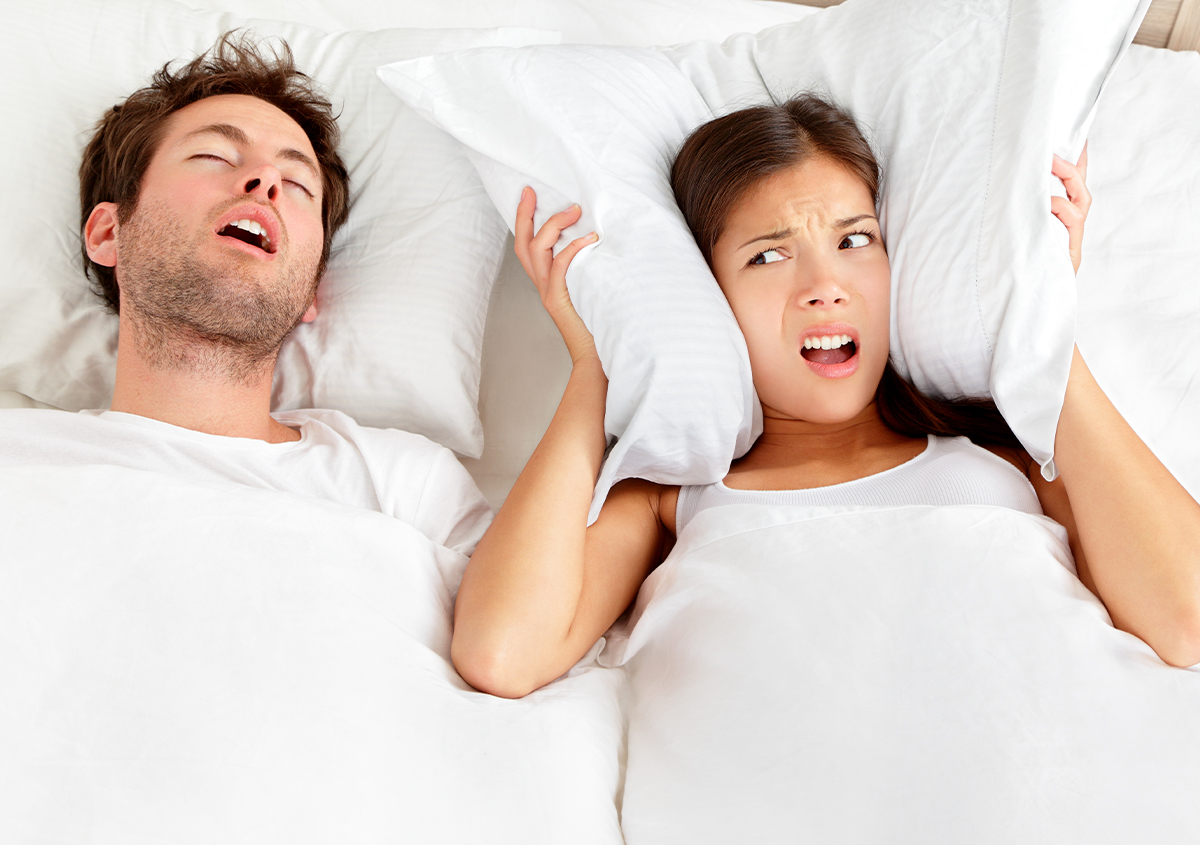
We Speak English, Spanish, Portuguese, Korean, Arabic, Russian and Ukrainian
Monday to Thursday:
Friday:
Saturday:
New Patients:
Existing Patients:

21
Jun
Improve Your Health and Your Sleeping Partner’s Happiness with Sleep Apnea Treatment

Has your bed partner complained of your raucous snoring at night? Do you wake up tired despite a full night’s sleep? You could be among the 22 million Americans suffering from sleep apnea. This sleep disorder is no laughing matter. If left untreated, sleep apnea can cause several health complications, including heart disease, depression, diabetes, and hypertension.
Explanation of Sleep Apnea
Sleep apnea is a condition when a person stops breathing for 10 seconds or more while asleep. This can be a hypopnea or partial loss of breath or an apnea or total loss of breath. Mild sleep apnea is an apnea-hypopnea index of five to 14 events per hour; Moderate is an AHI of 15-29 events per hour, and severe sleep apnea is an ahi of 30 or more events per hour.
With Obstructive sleep apnea, the airway is narrowed or closed off during sleep by the tongue and soft tissue of the throat. It can be treated with a CPAP, surgery, or a mandibular advancement dental device.
Dentists at Acton Dental Associates can help using dental devices to help with mild to moderate obstructive sleep apnea.
When you are awake, the muscles are tight, and the airway is open, but when you are asleep, your body is essentially paralyzed except for the diaphragm; the tongue can fall back due to the muscles being fully relaxed. This causes the air passageway to narrow or be completely closed off. The uvula and surrounding tissues can also vibrate, causing snoring.
How can Acton Dental Associates dentists help treat Sleep apnea and snoring?
Dentists at Acton Dental Associates will first examine the patient intra-orally, extra-orally, and with a comprehensive medical history. When a patient reports snoring, not feeling refreshed, and not dreaming, these can all be signs of obstructive sleep apnea. Other signs can be a high vaulted palatal arch, breathing through the mouth, a large scalloped tongue, or retruded mandible. When these signs or symptoms are presented, it is necessary to facilitate a referral for a sleep study to diagnose potential sleep apnea properly.
A home sleep study is a quick and convenient way for a patient to get tested for sleep apnea in their home. A certified sleep specialist will read the report. Dentists can treat their patients with mandibular advancement dental devices if the report shows mild to moderate sleep apnea. Suppose the reports show the patient to be in a severe category. In that case, they may need another sleep study done in a sleep lab situation and ultimately treated with CPAP or combination therapy with a dental device.
Request an Appointment
Clenching and grinding
(Bruxism) and sleep apnea can be very tied together. They grind their teeth and move their jaw and tongue forward to unobstruct their airway and provide enough air space to breathe. This can be a fight-or-flight response when a patient is fighting for air. This bruxism can create attrition, loss of vertical dimension, headaches, sore muscles, and TMD.
What appliance can a dentist make for Sleep apnea?
The most common dental treatment for sleep apnea is a mandibular advancement device. They are custom-made and have an upper, lower, and connecting hinge to protrude the mandible forward.
At Acton Dental Associates, Acton, Massachusetts, everyone deserves a good night’s sleep and excellent health. We can help facilitate a diagnosis of obstructive sleep apnea; they can screen, refer, treat it, and evaluate the suitability of oral devices for sleep apnea. Learn more. If you suffer from sleep apnea, we can help.
Effective sleep apnea therapy near me
If you wake up with morning headaches, a dry mouth, or fatigue, sleep apnea could be the problem. Don’t endure these symptoms any longer.
Call (978) 881-5826 to schedule an appointment with Acton Dental Associates for sleep apnea treatment. You deserve a restful night’s sleep to wake up feeling rejuvenated for a productive day and life
